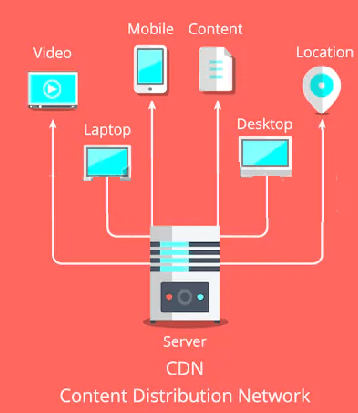CDN And DNS: How Do You Create A CDN Using A DNS?

When discussing the link between CDN and DNS, we need to commence this discussion by defining both of these terms. A Domain Name System (DNS) is a tiered and devolved naming system for computers, services, or other resources linked to the net or a remote network.
A Content Delivery Network (CDN), on the other hand, is a physically spread group of servers that work in harmony to provide cyberspace content's fast conveyance.
CDN are things that we interact with on a regular basis, from shopping and watching movies all the way to studying online. CDNs exist for them to solve the recurring issue of latency. That is the period it takes for a webpage to load after a prompt is made.
High latency is frustrating for anyone and will steer away users from a specific website. CDN and DNS work hand in hand, whereby the most popular method of employing CDNs is by DNS server redirecting. However, DNS based CDNS are facing a performance decrease from remote CDNs.
This discussion will look at how a CDN works, How CDN has evolved over time, how DNS solves the latency issue for CDNs, who employ a CDN's services, the link between CDN and DNS, and plenty more besides.
CDN And DNS: How Has the CDN And DNS Link Evolved Over Time?
Commercial CDNs date back as far as the early 90s. Like any other dated tech, they have gone through some wholesome changes such as the ever-impressive CDN and DNS cooperation that has made CDN the robust delivery platform it is today.
The track of CDN development was molded by market forces, including new connectivity improvements and content consumption trends. The former has been propelled by fiber optic technology and other novel communication techniques as well.
CDN And DNS: How Does A CDN Operate?
In order to reduce the distance between web users and a domain's server, a CDN will store a cached version of the domain's content in multiple physical locations, also known as points of presence (PoP).
This means that a web user does not have to be connected to a domain's origin server. The CDN works to re-route the web user to the nearest server on the network. Web-users that are re-routed get to use the cached version of the domain, although it is not inferior to the main domain.
CDN And DNS: How to Create Your Own CDN Using DNS
Setting up your own CDN can be expensive, depending on the configuration model that you pursue. However, it can also be cheap when you use Geo DNS and ordinary servers that incorporate unique IP addresses.
Using a Geo DNS can assist you in building your personal CDN framework or Geolocation load balancing network. Of course, the benefit of this is the accurate geolocation tagging that makes a decision based on the web user's actual location and not based on the DNS resolver's site.
You can easily configure your DNS to show IP addresses to web users based on their location. For instance, web users in the UK will receive a European Ip address rather than an American one even if the Website is American.
This procedure can seem a bit complex, but the numerous service providers out there will make your CDN and DNS protocols to work together and give visitors a good experience.
CDN And DNS: Who Employs the Services of A CDN?
Today over half of the global internet traffic is serviced by CDNS, so basically, everyone around the world uses CDNs. With every passing year, these numbers seem to be on the upward trend.
The truth is that it's a no-brainer not to employ the CDN and DNS framework if your business is an online platform. This is because most of these amenities are offered free of charge.
Yet even with the CDN and DNS framework being free, it is not for everyone. For instance, a localized website does not need this configuration because most of its users are close and can use the website's origin server.
In such a scenario, using the CDN and DNS framework can compromise your website's performance because unnecessary and under-utilized connections have been introduced.
CDN and DNS: Final Thought
All in all, as we have seen above, CDN and DNS are very vital parts of today's cyberspace. Their significance will continue to be on the upward trajectory as more businesses move to shift most of their services online and attract a global audience in the process.